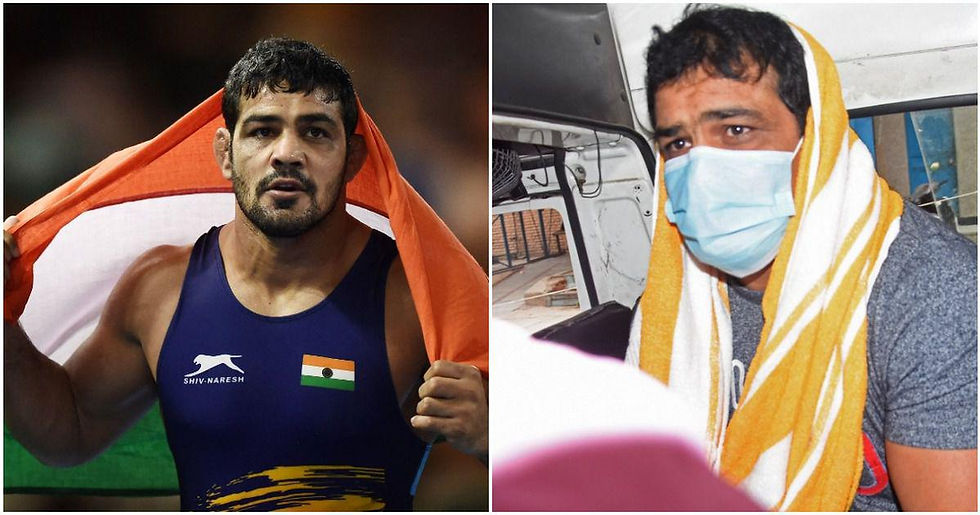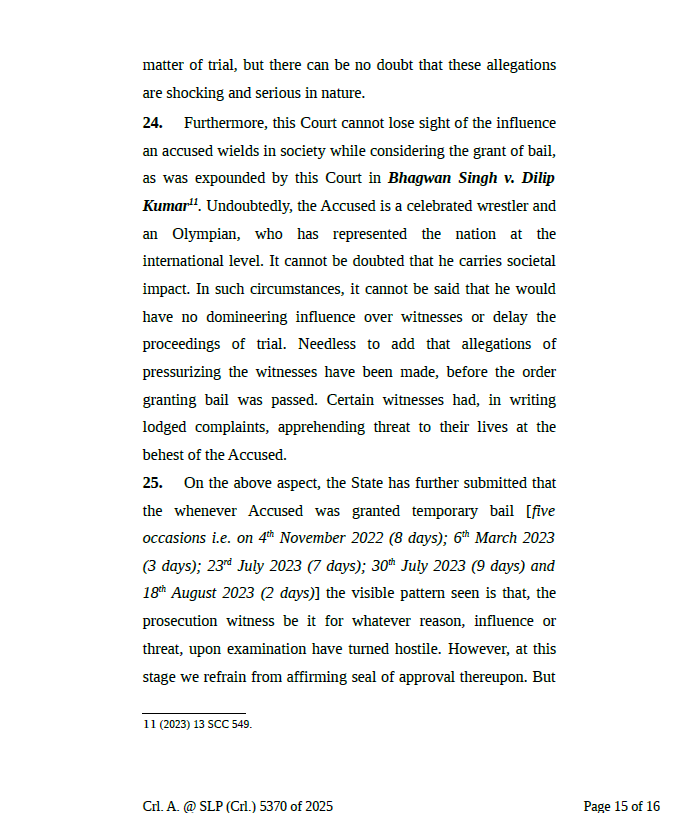SCOI Cancels Bail of Olympian Sushil Kumar in Murder Case, Emphasizes Witness Protection
- M.R Mishra

- Aug 18
- 2 min read
The Supreme Court of India, in the case of Ashok Dhankad v. State of NCT of Delhi & Anr., addressed critical concerns around the grant of bail in cases involving grave offences.
What's The Matter?
The matter arose when the complainant challenged a Delhi High Court order that granted regular bail to Sushil Kumar, a celebrated wrestler and Olympian, who faced serious charges including murder, abduction, and armed assault.

The Court noted that while upholding personal liberty is a critical constitutional value, courts must also weigh the gravity of the offence, possible societal repercussions, and the need for a fair investigation and trial, free from interference.

According to the police investigation, Sushil Kumar and his associates abducted several individuals on the night of 4th–5th May 2021 and assaulted them at Chhatrasal Stadium using wooden sticks and firearms, resulting in the death of one victim.
The accused evaded arrest for several days, leading to non-bailable warrants and a police reward for information on his whereabouts before eventually being apprehended.
What Court Said?
The Supreme Court observed that, at the trial stage, out of 35 examined prosecution witnesses, 28 had turned hostile a pattern increasingly evident after the accused was granted temporary bail on multiple occasions.
The judgment draws a distinction between setting aside the grant of bail and canceling bail, emphasizing that an appellate court examines whether the original bail order was justified based on a proper judicial assessment, while cancellation typically involves the accused’s conduct after bail.
It was found that the High Court did not give adequate weight to several crucial factors, such as the seriousness of the crime, the accused’s history of absconding, his considerable influence (given his public stature), and the risk of witness intimidation.

The Supreme Court underlined that in high-profile and heinous crimes, the potential for an accused to interfere with the justice process and public confidence must be factored into bail decisions.

Ultimately, the Supreme Court set aside the High Court’s bail order, directing that the accused surrender before the concerned court within one week, while leaving the door open for a fresh bail application should circumstances materially change.
The judgment serves as a strong reminder that judicial discretion in bail matters must go beyond procedural formalities and address the wider interests of justice, public faith, the rights of victims, and the proper conduct of a criminal trial.







Comments